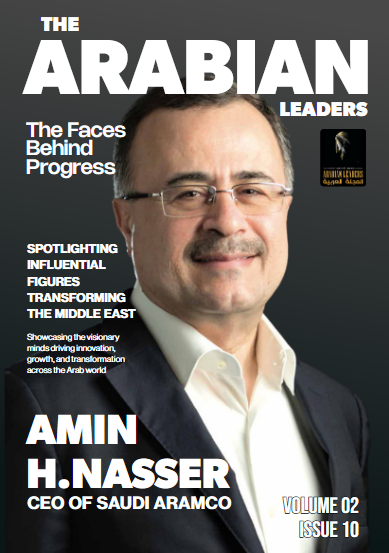When Saudi Arabia set out to redefine its economic future beyond oil, it needed more than vision—it needed a global footprint. That footprint today is embodied in the Public Investment Fund (PIF), a sovereign wealth engine with an appetite for disruption and innovation on an international scale. With Crown Prince Mohammed bin Salman at the helm, PIF has moved from local mega-projects to the global boardrooms of Silicon Valley, Detroit, and Wall Street. From pioneering electric vehicles to rewriting mobility economics, PIF is investing in the future not just for Saudi Arabia—but for the world.
A Global Expansion of Saudi Ambition
The PIF’s international strategy is not scattershot—it is tactical, aggressive, and visionary. Its stakes in global companies form a carefully curated portfolio designed to serve long-term goals. These goals include technology transfer, market leadership, and influence in sectors shaping the Fourth Industrial Revolution. Whether it’s artificial intelligence, fintech, autonomous driving, or electric mobility, PIF is there—not as a passive investor, but as a strategic shareholder.
One of the most recognizable names in PIF’s portfolio is Uber Technologies. The Fund invested $3.5 billion in Uber back in 2016, when the ride-hailing giant was still climbing toward profitability. The move made headlines—not just for its size, but for what it signified. Saudi Arabia wasn’t just observing global tech disruption; it was financing it. And in doing so, it gained not only capital returns but valuable knowledge and data on mobility trends, user behavior, and platform economics. This wasn’t just investment—it was immersion.
Lucid Motors: Driving the Electric Future
Perhaps no partnership captures the future-facing nature of PIF better than its involvement in Lucid Motors, the American electric vehicle company that is widely seen as a challenger to Tesla. PIF first invested in Lucid in 2018, with a commitment of over $1 billion. The aim was clear: bring electric vehicle technology and manufacturing know-how to Saudi Arabia while riding the global EV wave.
By 2022, PIF had doubled down. It held a controlling stake in Lucid, facilitated the company’s listing on NASDAQ via a SPAC merger, and initiated the launch of a Lucid manufacturing plant in King Abdullah Economic City (KAEC)—the company’s first outside the U.S. This was more than economic diversification; it was a geopolitical play. Through Lucid, Saudi Arabia aligned itself with global climate targets, EV markets, and cutting-edge battery technology.
Lucid’s commitment to produce 150,000 vehicles annually in Saudi Arabia will not only fuel the Kingdom’s green goals but will also create local jobs and position the country as a regional EV hub. The partnership signifies a leap from oil capital to energy innovator.
SoftBank and the Vision Fund: Betting on Tech Titans
The PIF was also an anchor investor in SoftBank’s Vision Fund, contributing $45 billion—the largest contribution to the $100 billion mega-fund. The Vision Fund backed high-growth companies like Slack, WeWork, DoorDash, and ARM Holdings. Through this vehicle, PIF gained exposure to frontier technologies including artificial intelligence, robotics, cloud computing, and data analytics.
Though not all investments performed equally (WeWork being the cautionary tale), the overall experience sharpened Saudi Arabia’s acumen in startup ecosystems and venture dynamics. More importantly, it made PIF a known entity in Silicon Valley boardrooms and tech circles around the globe. Today, the lessons from Vision Fund 1 are being applied in newer investments, with more rigorous governance and oversight.
Expanding Horizons in Gaming and Digital Content
PIF has also made calculated plays in the global gaming sector, one of the most lucrative and fast-growing entertainment verticals. Through its subsidiary Savvy Games Group, PIF has acquired stakes in Nintendo, Activision Blizzard, EA, Take-Two Interactive, and Capcom. These are not mere stock plays; they signal an intent to turn Saudi Arabia into a regional gaming powerhouse.
With the gaming market expected to cross $300 billion by 2026, PIF is aiming to localize talent, attract eSports tournaments, and cultivate its own IPs. The acquisitions are stepping stones to establishing Saudi Arabia as a global player in digital content production.
Fintech and Global Banking Influence
Beyond technology and mobility, PIF is staking its claim in international finance. It holds positions in major institutions like Citigroup, Blackstone, and BlackRock, giving it both visibility and influence in the financial arteries of the world.
Moreover, its investments in fintech startups across Europe and the U.S. show an eagerness to transition into next-generation banking and decentralized finance. These plays are more than monetary—they serve Vision 2030’s broader digital transformation goals, pushing Saudi Arabia toward a cashless, AI-enabled financial ecosystem.
Aerospace, Logistics, and Green Hydrogen
PIF has also diversified into aerospace and advanced logistics through stakes in Boeing suppliers and European cargo logistics firms. These moves align with the development of Riyadh Air and the wider ambitions of transforming Saudi Arabia into a logistics hub connecting Asia, Europe, and Africa.
Additionally, its heavy investment in green hydrogen, especially via ACWA Power and global hydrogen consortiums, places Saudi Arabia at the center of the renewable fuel race. By exporting hydrogen to Europe and Asia, the Kingdom plans to replace petrodollars with “hydrogen riyals.”
Sports and Lifestyle Branding
Perhaps one of the more unexpected frontiers is international sports. PIF’s acquisition of Newcastle United Football Club in the English Premier League made waves across the global sports community. It was not just a financial transaction—it was a branding strategy.
The Premier League is one of the world’s most watched and profitable sports platforms. With it, Saudi Arabia bought visibility, credibility, and a platform to tell its new story. From hosting Formula 1 races to partnering with the PGA Tour, PIF is embedding Saudi influence in global lifestyle narratives.
Strategic Benefits Beyond Returns
While profitability is a clear driver, PIF’s international investments are also about soft power, strategic positioning, and long-term national resilience. Each dollar deployed in Uber, Lucid, or SoftBank is a brick in the larger edifice of Vision 2030. These are not mere asset plays; they’re ecosystem enablers.
- Talent attraction: By engaging with global innovators, Saudi Arabia opens its doors to top-tier engineers, designers, and entrepreneurs.
- Technology localization: Many of these investments come with a condition to bring production or R&D centers to the Kingdom.
- Policy alignment: Global partnerships help align domestic regulatory structures to international standards.
- Cultural export: Through gaming, sports, and entertainment investments, the Kingdom builds a new narrative—one of dynamism, youth, and creativity.
A Playbook for Emerging Powers
PIF’s global footprint serves as a model for how sovereign wealth funds can evolve from passive endowments to active nation-builders. It proves that capital, when paired with clarity of vision, can change the destiny of a nation. Unlike traditional funds that focus solely on yield, PIF deploys capital as a strategic weapon, one that brings back knowledge, access, and credibility.
And as it approaches its $2 trillion AUM target by 2030, PIF is not slowing down. It’s accelerating into sectors like quantum computing, biotechnology, and deep space—a far cry from the petrodollar days of passive treasury bonds.
Pre-Conclusion: The Ripple Effect of Global Stakes
What makes PIF’s international investment strategy truly transformative is the ripple effect it creates back home. Each equity position abroad is tethered to a larger ambition domestically. Uber wasn’t just a mobility play; it led to the rise of local ride-hailing apps like Careem, which itself was acquired by Uber with Saudi blessings. Lucid wasn’t just about EVs—it paved the way for Ceer Motors, Saudi’s own electric car brand.
These are compounding benefits. The flow of ideas, capital, and collaboration from PIF’s global stakes injects lifeblood into Vision 2030’s pillars—industrialization, digitization, and sustainability. The global becomes local, and the local becomes world-class.
Moreover, as geopolitical dynamics shift—be it energy transitions, tech rivalries, or economic rebalancing—PIF ensures that Saudi Arabia is not just reacting to the global order but actively shaping it.
This isn’t just about money. It’s about mission.








